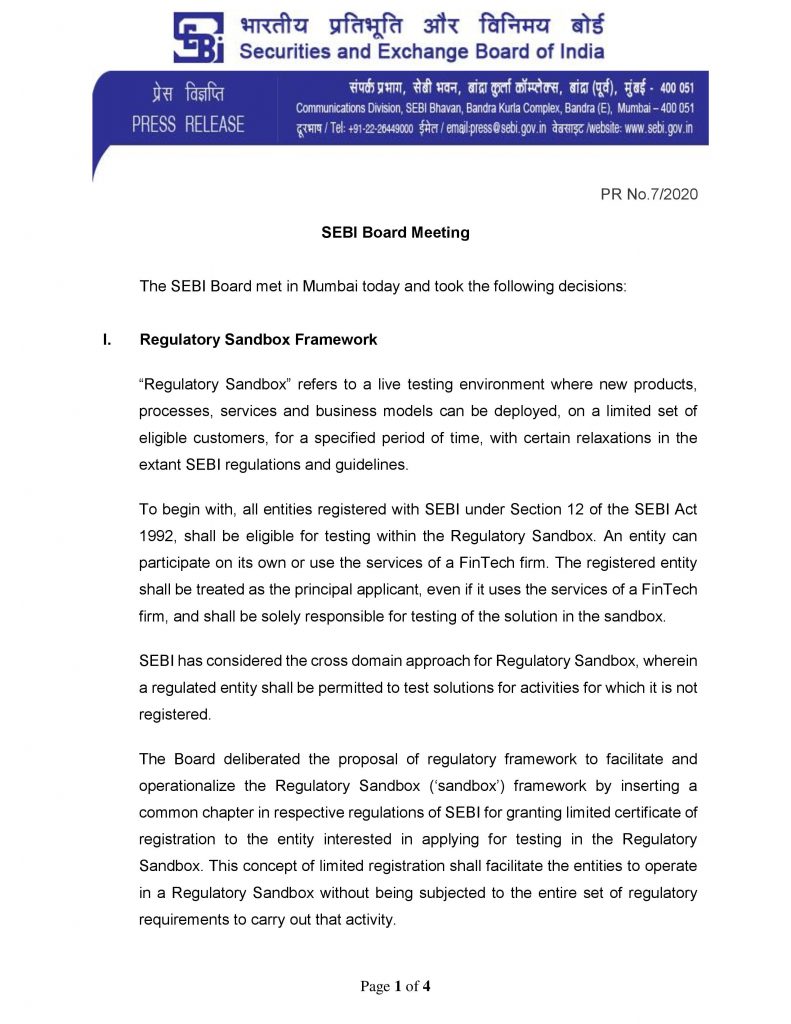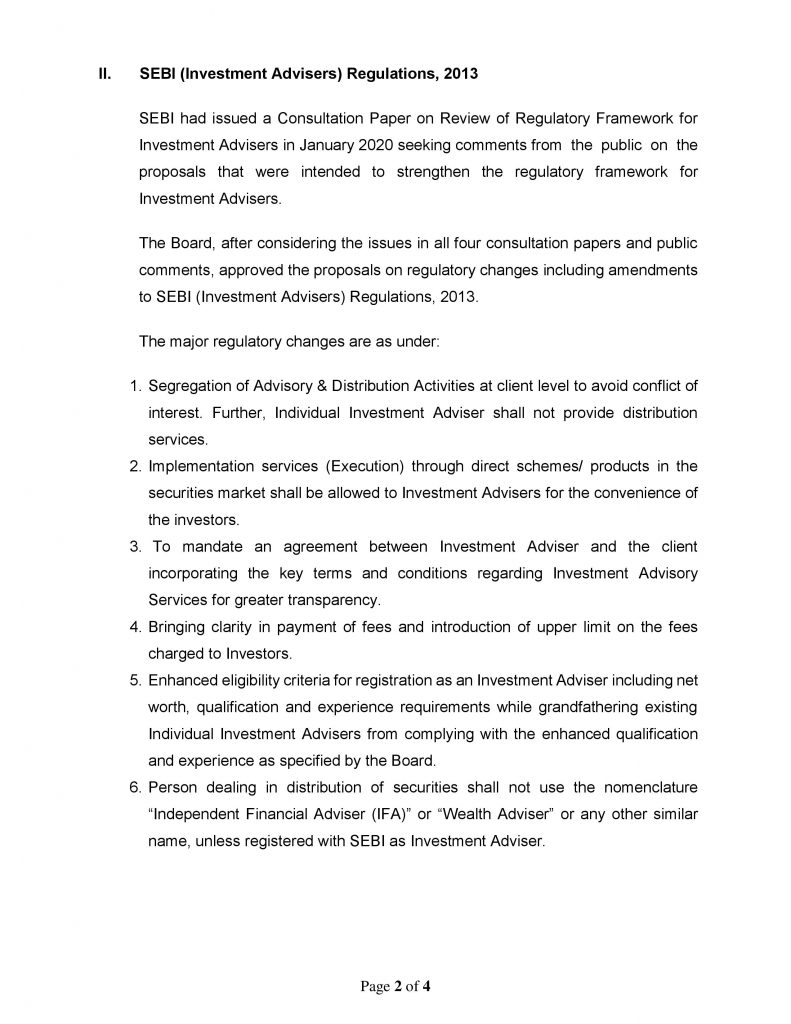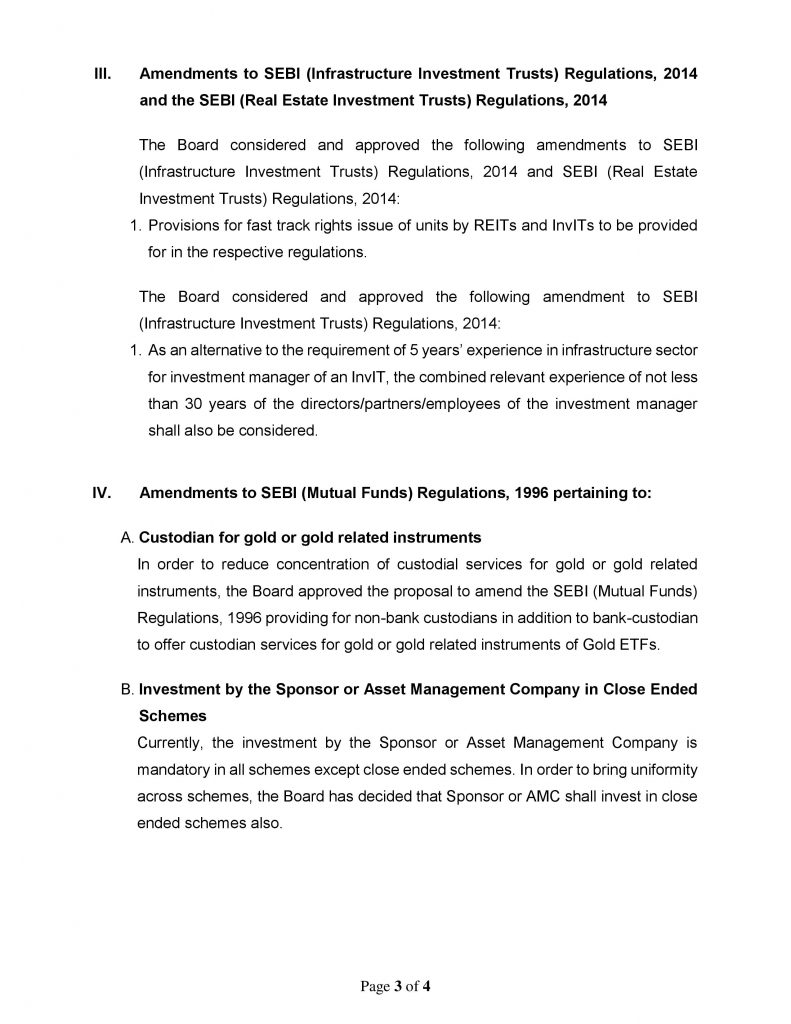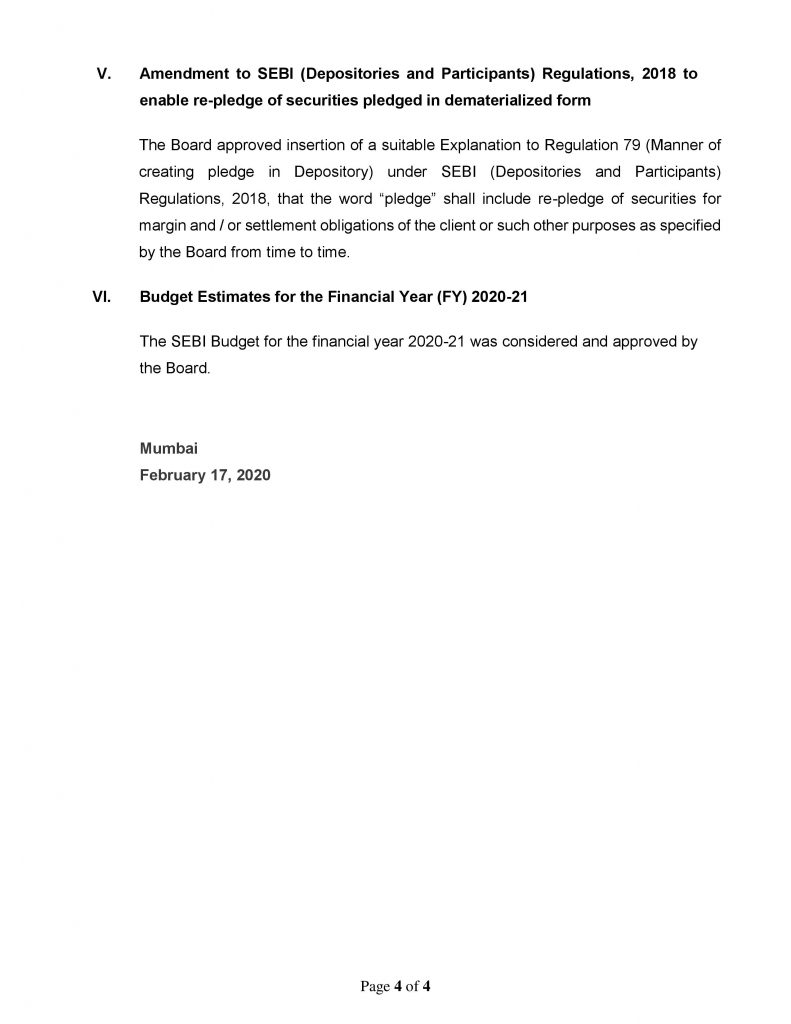The markets regulator barred investment advisers from simultaneously selling financial products and advisory services, and capped the fees they can charge their clients, in an attempt to curb mis-selling and protect investors.
From now on, an entity can provide either advisory services or distribute financial products to a client, which has been defined as a family that includes dependent spouse, children and parents. The regulator also cleared norms for so-called regulatory sandboxes at its board meeting.
Several entities registered with the Securities and Exchange Board of India as investment advisers had attracted complaints of promising guaranteed income, overbilling and recommending high-risk products to clients not suited for them, prompting the regulator to issue a discussion paper in January.
However, Sebi chairman Ajay Tyagi clarified that the regulator is okay with having two corporate entities under the same parent providing advisory and distribution services. This could potentially limit the benefit for investors, as it means that under the same brand, there can be two separate entities providing advice and distributing Sebi-regulated financial products.
Previously, corporate advisers, including individuals who were conducting their business through corporate structures like LLPs, could distribute products and render advisory services to the same client simultaneously, provided the two services were separated from each other.
A Sebi statement after its board meeting on Monday said there will be enhanced eligibility criteria to register as an investment adviser, including enhanced net worth and qualification requirements. However, existing advisers will be “grandfathered” (unaffected).
Sebi also cleared norms for capping advisory fees. In the discussion paper, the regulator had proposed a fee of 2.25% of assets under management or an absolute amount of ₹75,000 per annum. The fee can be charged for up to two quarters at a time and cannot be fully charged upfront.
The regulator also cleared norms for regulatory sandboxes, which will allow live-testing of new financial products or services in a controlled environment. Exchanges and market infrastructure institutes have already implemented their own sandboxes.
A regulatory sandbox will not only allow companies to test their fintech solutions in isolation from the live market, but also enable Sebi to form policies and regulations encouraging them.
The regulator will also grant these innovative ideas certain relaxations from some regulations and guidelines hampering the proposed innovations and acting as barriers to entry of new products.
This was Sebi’s last full board meeting under Tyagi, who steps down in March if his tenure is not renewed. Whole-time member Madhabi Puri Buch will also step down in the last week of March.




The Economic Times in it’s editorial said:
Sebi’s move to restrict ‘independent investment advisers’ might be well-intended but is ill-designed. Sebi will bar these advisers from selling mutual funds and cap the number of clients they can take and the fee they can charge — to protect investors from being shortchanged by advisers pushing schemes of fund houses that give them generous commissions. But larger financial service providers like banks, finance companies and distribution arms of brokerages are free to advise as well as sell through different outfits, albeit to different sets of clients.
Savvy investors may altogether do away with a distributor by approaching the advisory wing of a finance group to identify the products that suit them and then directly buy on the net. But most retail investors prefer an intermediary who would help them choose among thousands of mutual fund schemes as well as execute the transactions.
It need not necessarily lead to mis-selling. If independent advisers have to maintain records of their product recommendations and the stated investment goals to serve which these are being made, and set down the possible downsides, tough penalties for mis-selling would restrain them from being driven entirely by commission received from MFs. In fact, the rule to segregate advisory and distribution services could make the system more opaque. Advisers could position themselves as sellers of MFs offering informal advice on what to buy while finance companies and brokerages lure unsuspecting investors (who do not insist on receiving pure advice) to distribution arms that sell MFs. Today, acting as self-styled advisers and driven by a skewed incentive structure, relationship managers and front-desk employees of private and MNC banks are more interested in pushing products like MFs and Ulips than advising customers on fixed or recurring deposits.
By micro-managing on fees that advisers can charge, Sebi’s new rule may make the very advisory model unsustainable.
Drop the caps, bring in transparent formats for adviser-investor interactions, and introduce harsh punishment for mis-selling.


